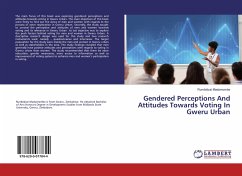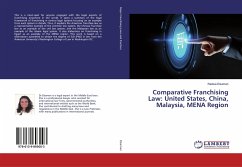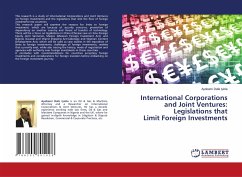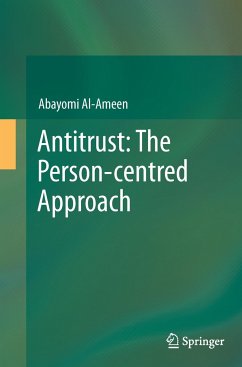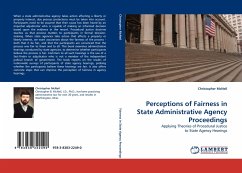
Perceptions of Fairness in State Administrative Agency Proceedings
Applying Theories of Procedural Justice to State Agency Hearings
Versandkostenfrei!
Versandfertig in 6-10 Tagen
45,99 €
inkl. MwSt.

PAYBACK Punkte
23 °P sammeln!
When a state administrative agency takes action affecting a liberty or property interest, due process protections must be taken into account. Participants need to be assured that their cause has been heard by an impartial adjudicator who is capable of making an informed decision based upon the evidence in the record. Procedural justice doctrine teaches us that process matters to participants in formal decision-making. When state agencies take action that affects a property or liberty interest, we want assurances about the fairness of the process - both that it be fair, and that the participant...
When a state administrative agency takes action affecting a liberty or property interest, due process protections must be taken into account. Participants need to be assured that their cause has been heard by an impartial adjudicator who is capable of making an informed decision based upon the evidence in the record. Procedural justice doctrine teaches us that process matters to participants in formal decision-making. When state agencies take action that affects a property or liberty interest, we want assurances about the fairness of the process - both that it be fair, and that the participants are convinced that the process was fair to them and to all. This book examines administrative hearings conducted by state agencies, to determine whether participants believe the process is fair. Common to all such hearings is the use of a fact-finder or adjudicator who is not a member of the independent judicial branch of government. The book reports on the results of nationwide surveys ofparticipants of state agency hearings, probing whether the participants believe these hearings are fair. It also offers concrete steps that can improve the perception of fairness in agency hearings.



